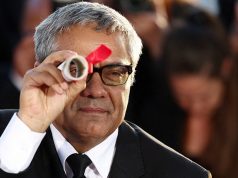
CANNES — Cannes Film Festival director Thierry Fremaux lamented on Monday an increased focus in recent years on political and social issues in the movie industry, which he said came at the expense of the actual films.
“In the past, people only talked about the cinema. We as organizers only had one anxiety – the films: will people like them, will people hate them?” Fremaux said at a news conference with journalists on Monday.
Fremaux made the comment in response to a question about a report in French newspaper Le Figaro last week that said Cannes had hired a crisis management team to deal with possible fallout from a list that could be published of 10 film industry figures who have been accused of sexual abuse.
“It’s not polemics that actually spring from the festival, that’s something we want to avoid,” Fremaux said.
However, he said it felt was important to show at the festival the new short film “Moi Aussi” (“Me Too”) by Judith Godreche, a French actor who has been a major voice in the country’s #MeToo movement. The global #MeToo movement has exposed men accused of sexual harassment in fields including entertainment, politics and business.
Last week, the festival announced that the 17-minute short featuring the testimony of some 1,000 victims of sexual abuse would be shown at the “Un Certain Regard” competition’s opening ceremony on Wednesday evening.
Fremaux repeatedly stressed that films were chosen for their cinematic qualities – whether on Ukraine, Gaza or former U.S. President Donald Trump.
From the start, “Cannes has reflected the upheaval in the world because that’s what directors do in their film,” he said.
Fremaux is also dealing with a possible strike by festival workers that threatens to shut everything down at Cannes, which runs from May 14 to 25. Fremaux said that Cannes was discussing matters with workers’ representatives on a daily basis.
Fremaux said that the festival had workers that staff interacted with every day who were calling for better conditions. “Everyone wants to avoid a strike,” he said.
—Reporting by Miranda Murray and Alicia Powell, Editing by Rosalba O’Brien









